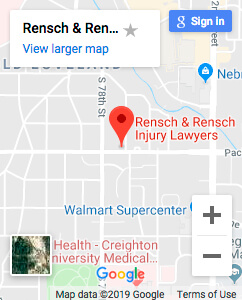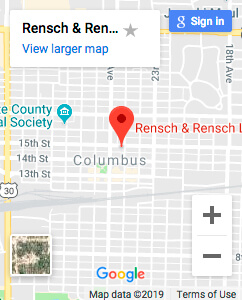How to Help a Friend or Loved One After a Car Accident
OMAHA, Nebraska. If your friend or loved one has been in a car accident, he or she may be struggling with the recovery process. Your friend or loved one may be facing lifestyle changes, mobility challenges, and may even have to miss time from work to recover. The aftermath of an accident brings with it grief and unique challenges. Having a strong community of supportive friends and family is essential. So, how can you help a friend who is recovering after a serious car accident?
Small things matter. In the weeks and days following a crash, your friend or family member’s life may be turned upside down. Small actions, like bringing dinner, dropping by to hang out, or calling just to talk, can help immensely. In general it is best to avoid making generalized offers to help. Instead, be specific. If you can babysit on Saturday mornings while they go to rehab, say so. The aftermath of a car accident can be stressful. Even if your loved one or friend knows you want to help, they may not think to ask you if they need you. But, if they know they can count on you with cooking help for the potluck, that added support can make all the difference.
According to XOJane, consider what you can do and make a specific offer to help, but also be prepared to respect your friend or loved one if they need time and space to handle the trauma on their own. In some cases, it’s the small things that matter: taking the laundry in if it’s on your way, watering a loved one’s plants if they need to go away for rehab, or even offering to collect their mail while they are in the hospital are some ways you can help.
Friends and family should also be prepared for a friend to be dealing with depression and anxiety, especially if he or she has suffered a life-changing disability. While you shouldn’t try to play therapist, just sticking around through the tough times can help. When a loved one or friend suffers a disability, there is also a normal grieving process that he or she may undergo. According to Woman’s Day, there are some things you can also avoid doing during this grieving process. For example, avoid asking for too many details about the accident. Your friend or loved one may be suffering flashbacks or trauma and reliving it may not be helping them. In some cases, individuals need to explore the trauma with a licensed professional. You may also want to avoid telling your friend or loved one that things will get better. While we all want to be optimistic, your loved one may be facing immense lifestyle changes and new challenges. Telling a loved one that things will get better essentially involves avoiding the real loss that has taken place. Instead, tell your loved one you are sorry and let them know that you are there for them as they adjust.
Finally, if your loved one or friend has been seriously injured, don’t try to play the role of a professional. He or she may be facing challenges speaking to insurance adjusters and may be facing immense bills. The qualified Omaha, Nebraska personal injury lawyers at Rensch & Rensch Law offer compassionate and caring counsel to help your loved ones negotiate these challenges. Our firm may be able to help your loved one seek damages to cover medical expenses, lost wages, and pain and suffering. Visit us at https://www.renschandrensch.com/ to learn more.



